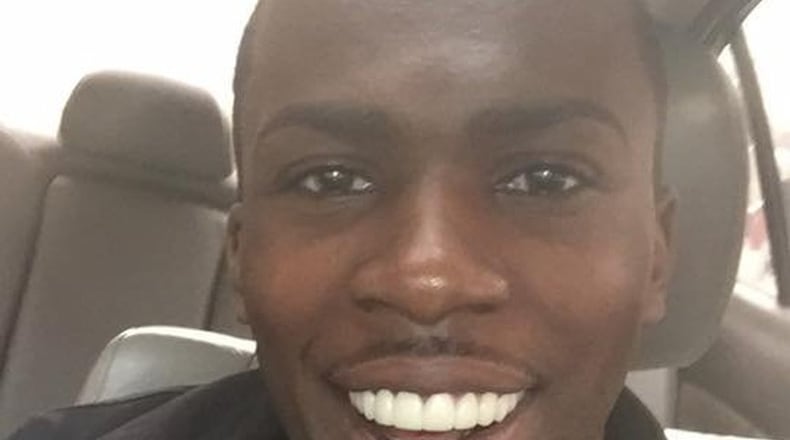Michael Smith — the 22-year-old man who committed suicide in Piedmont Park July 7— was a man struggling from the pressure of being both black and gay.
“Everything was wearing on him at one time,” Regine St. Jean said.
Coming immediately after the shooting of black men by police in Minnesota and Lousiana, and just before the shooting of five police officers in Dallas, many on social media speculated his death might have been some sort of hate crime or retribution. The discussions generated headlines across the country.
St. Jean said she was a close friend of Smith and met him when they attended Rocky River High School in North Carolina together.
Smith lived in North Carolina with his grandmother until she moved to London in 2013. According to St. Jean, Smith began to crumble after his grandmother’s move, as she was the only close family tie he maintained after opening up about his sexuality.
According to Project Q, an Atlanta-based site for LGBT news and events, Smith regularly posted on social media about being gay, “his Man Candy Monday crushes, relationship issues and struggling with family over his sexual orientation.”
On June 17, the outlet reported, Smith posted a screen shot of a Snapchat conversation to Facebook, saying his mother was teaching his siblings to despise gays.
“He didn’t really want to associate with his mom,” St. Jean said. “She didn’t believe in him being gay and she didn’t accept that he was gay. I told him he needed to try to talk to his mom to try to have a better relationship with her.”
The Atlanta Journal-Constitution was unable to contact Smith’s mother, but Atlanta-area therapist Angelique Burke said that refusal to accept gay family members is not an uncommon response.
“If we don’t talk about it, then it won’t be true,” Burke said. “Facing the reality and the truth of it is seen as more painful — more damning — than pretending it doesn’t exist.”
Controversy still surrounds Smith's death because of its association with a Jim Crow era symbol.
“It is an archetypal way of seeing things, a black man hanging from a tree in the south,” Burke said. “I’m curious what was going through Michael Smith’s spirit and heart and mind.”
Social media users speculated that the death could be a lynching by the Ku Klux Klan, some saying that the hate group was in the area the day before. Journalist and radio host Jennifer Keitt said that the "volatility" of the week in which the suicide happened helped spur conspiracies surrounding the death.
“(The death) came in the middle of this horrific week,” Keitt said. “It starts off Tuesday with a police shooting in Louisiana, and then continues into Wednesday with another police slaying in Minnesota.”
On Twitter, people were slow to believe that Smith's death was a suicide, noting the low suicide attempt rate for black Americans.
“Black men don’t hang themselves from trees in the south,” one Twitter user said.
But Smith, being at an intersection of race and sexuality, was a part of a demographic where that rate is reversed. A 2011 study by the American Public Health Association showed that in the gay community, men of an ethnic background are at a higher risk for attempting suicide than their white counterparts.
“According to the minority stress model, the excess prejudice, stigma and discrimination encountered by sexual minority individuals lead to increased mental health problems in this population and a resulting increased risk of suicide,” the study said. “Black and Latino LGB individuals may be at elevated risk for suicide attempts even in the absence of the traditional markers of depression and substance abuse.”
Burke encouraged people in positions mirroring Smith’s to seek solutions that “aren’t so permanent,” stressing the resources offered by mental health professionals.
“There is support. There is help. You are not alone,” Burke said.
St. Jean said: “I just regret that he didn’t talk to me as a friend. I just want everyone to know that if they do feel this way … suicide is not the answer.”
About the Author




